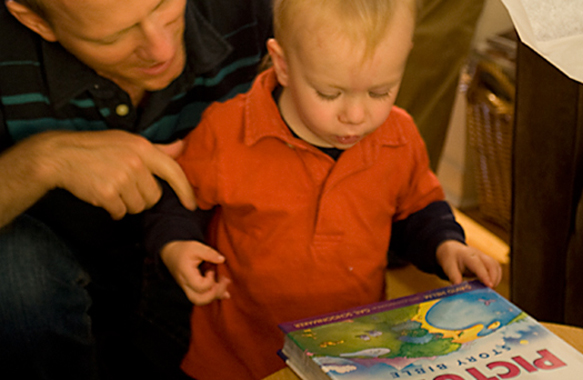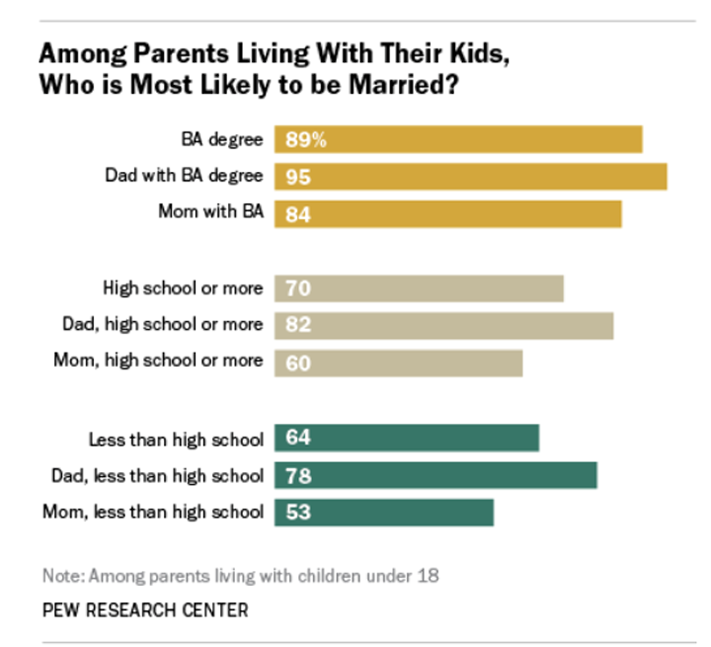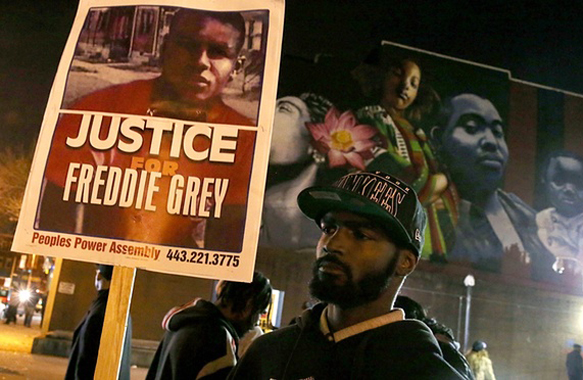We test and test our children in a futile attempt to alter reality. We wish to believe that scores on a battery of examinations will predict the future, or at least offer some insight into a student’s progress. Policymakers suggest the tests will forecast a child’s potential. Parents may say that the tests reveal nothing, but when the scores are released watch their faces. Moms and Dads will glow with glee if their child succeeds. “I knew s/he was a high-achiever.” And Johnny or Juanita may well be. Is it because s/he has a great teacher? Does the school make the difference, or is it we, and our socioeconomic condition? Let us consider another perspective. Could it be that the family and circumstances both make a difference? Perhaps it is time to pursue a novel investigation. Test for the Links Between Education, Marriage and Parenting. Why was the War on Poverty subverted, or did it in truth end? Did we see the progress made and still miss the links between education and edification? The data shows these exist….
The Links Between Education, Marriage and Parenting
Among parents who live with a child under the age of 18, 89% of college graduates are married, compared with 64% of parents with less than a high school diploma and 70% of those with just a high school diploma.
Marriage has been on the decline for decades, particularly for those with less education. At the same time, the share of non-marital births for the less educated has risen dramatically, and the likelihood of divorce remains significantly higher among those lacking a college degree than among those who have one.
Not only is there an educational gap in the likelihood of parents living with their minor children being married, but there is a gender gap as well.
Just over half (53%) of mothers who lack a high school diploma and who live with their children are married, as compared with 78% of dads with the same educational level. These gender differences narrow considerably — but still persist — among the most educated. Some 84% of moms who have a bachelor’s degree and live with their children are married, compared with 95% of dads with a bachelor’s degree.
These gender gaps are largely driven by differences in the patterns of single parenting. While the share of single parents who are dads has risen dramatically, it’s still the case that most single parents are moms.
And since divorce and non-marital births are more prevalent among the less educated, that means single parents — particularly single moms — are more prevalent, as well. Approximately 30% of moms with less than a college degree who live with their kids are living without a spouse or partner, as compared with 7% of comparable dads. In comparison, 13% of college-educated moms who live with their kids are living without a spouse or partner, as are 3% of comparable dads.
NOTE: References to a “high school degree” have been changed to a “high school diploma.”
Gretchen Livingston is a Senior Researcher at the Pew Research Center’s Hispanic Trends Project and the Pew Social & Demographic Trends Project.













Leave A Comment